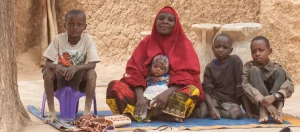
By David Aknimola
The Nigerian government has formally expressed concern over what it describes as a “disproportionate burden” imposed on its citizens by the current United States visa policy.
In a diplomatic communication delivered through the Ministry of Foreign Affairs, Nigerian officials called on the U.S. government to review its visa issuance process, which they say places Nigerian applicants at an unfair disadvantage.
According to the ministry, the lengthy wait times, high rejection rates, and limited appointment availability for non-immigrant visas have become increasingly restrictive for Nigerians seeking to travel to the United States for business, education, tourism, or medical reasons. Officials argue that these challenges contradict the principles of mutual cooperation and people-to-people exchange that both countries have historically upheld.
“Nigerians face some of the longest visa appointment wait times in the world, sometimes extending beyond 500 days,” a senior foreign affairs official stated. “This not only affects individuals and families but also disrupts business relationships, academic opportunities, and essential travel.”
While acknowledging the importance of sovereign nations enforcing immigration policies, the Nigerian government urged the U.S. to consider more equitable measures and streamline processes to reflect the long-standing diplomatic and economic relationship between both nations.
The statement also highlighted the significant contributions Nigerians make to the U.S. economy, particularly in sectors such as healthcare, technology, and education.
Nigerian students in the U.S., for instance, represent one of the largest African contingents, contributing millions of dollars annually to American universities and local economies.
The U.S. Embassy in Abuja has yet to formally respond to the statement, but sources indicate that bilateral talks are expected in the coming weeks to address the concerns raised.
Analysts believe Nigeria’s appeal comes at a time when countries across the Global South are increasingly calling for more balanced immigration frameworks that reflect global mobility and fairness.
This development also follows recent diplomatic engagements between Nigerian officials and representatives of Western nations over visa access and migration-related policies. The Nigerian government emphasized that improved visa access is crucial for maintaining the strong socio-economic ties it shares with the United States.
As both nations navigate this delicate issue, observers hope the concerns raised will lead to constructive dialogue and a more inclusive approach to visa administration.








